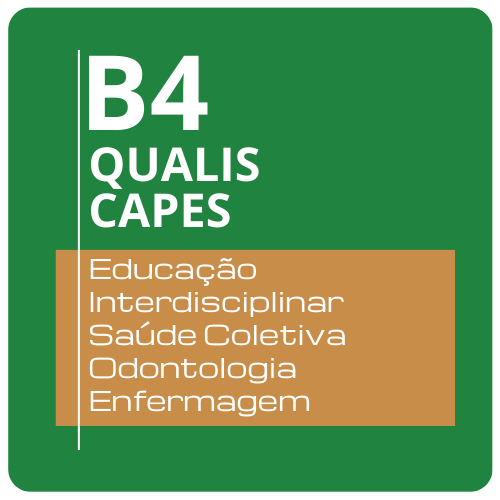PERFORMANCE OF RESIDENT SPEECH THERAPISTS IN THE CONTEXT OF THE COVID-19 PANDEMIC
Keywords:
Speech Therapy, Hospital Residency, COVID-19Abstract
Objective: To describe the experiences of resident speech therapists in the context of the pandemic of COVID-19 . Methods: This is a descriptive, exploratory research of qualitative approach, of the type of experience report, carried out at the General Hospital of Fortaleza, in Ceará, during the months of May 2020 to March 2021. Results: The performance of speech therapists living in the pandemic context of Covid-19 was based on evaluations and therapies regarding dysphagia, dysarthria, dysphonia, apraxia and aphasia. However, the priority of speech therapy evaluation was around the evaluation of swallowing that underwent adaptations so that aerosols would not be generated in the environment, reducing the risks of contamination. Final considerations: The experience report of speech therapy visits performed during the pandemic period of Covid-19 contributed to demonstrate the reality of the experience of the hospital environment, as well as its importance for adaptations in communication and swallowing of patients affected by neurological diseases.
Keywords: Speech Therapy; Hospital residency; COVID-19.
Downloads
References
2. Fernández R. Lara, Cabrera S. Natalia, Fernández O. Diego, Olcese T. Lorena. Disfagia en tiempos de COVID-19. Rev. Otorrinolaringol. Cir. Cabeza Cuello [Internet]. 2020; 80(3): 385-394. DOI: http://dx.doi.org/10.4067/S0718-48162020000300385.
3. Porto AC, et al. Atuação fonoaudiológica em pacientes COVID-19: Revisão integrativa. Cadernos ESP [Internet]. 2020;14 (1):38-44. Disponível em: https://cadernos.esp.ce.gov.br/index.php/cadernos/article/view/305/210
4. Padovani AR, Moraes DP, Sassi FC, Andrade CRF. Avaliação clínica da deglutição em unidade de terapia intensiva. CoDAS [Internet]. 2013; 25( 1 ): 1-7. DOI: http://dx.doi.org/10.1590/S2317-17822013000100002.
5. Padovani AR, Moraes DP, Mangili LD, Andrade CRF. Protocolo fonoaudiológico de avaliação do risco para disfagia (PARD). Rev. soc. bras. fonoaudiol. [Internet]. 2007; 12(3): 199-205. DOI: https://doi.org/10.1590/S1516-80342007000300007.
6. Padovani AR, Medeiros GC, Andrade CRF. Protocolo fonoaudiológico de introdução e transição da alimentação por via oral (PITA). In: Andrade CRF, Limongi SCO (Org). Disfagia: prática baseada em evidências. São Paulo: Sarvier; 2012; p. 74-85.
7. Pérez-Cruz E, et al . Evaluación de la disfagia en pacientes con enfermedades neurológicas y su relación con riesgo de desnutrición. Med. interna Méx. [Internet]. 2018; 34(3): 359-365. DOI: https://doi.org/10.24245/mim.v34i3.1815.
8. Hernández JJ, Rodríguez DLM, Gómez PMC, Sánchez GFMF. Factores pronóstico de la disfagia luego de an ataque cerebrovascular: una revisión y búsqueda sistemática. Rev. Cienc. Salud [Internet]. 2017;15( 1 ): 7-21. DOI: https://doi.org/10.12804/revistas.urosario.edu.co/revsalud7a.5371.
9. Prestes D, et al. Relação entre o risco de disfagia e o estado de saúde de indivíduos com a doença pulmonar obstrutiva crônica. CoDAS [Internet]. 2020; 32(4). DOI: https://doi.org/10.1590/2317-1782/20202019036.
10. Moraes DP, Spezzaano LC. Programa fonoaudiológico de reabilitação da deglutição em enfermaria. In: Andrade CRF, Limongi SCO (Org). Disfagia: prática baseada em evidências. São Paulo: Sarvier; 2012; p. 105-111.
Downloads
Published
How to Cite
Conference Proceedings Volume
Section
Categories
License
Copyright (c) 2021 Cadernos ESP

This work is licensed under a Creative Commons Attribution 4.0 International License.
Accepted 2021-06-01
Published 2021-07-27























